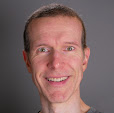Determinism Uses "Science" To Undermine Science
Determinism holds that all action is reducible to atoms going about doing what atoms do. [I use "atoms", in this post, as a handy abbreviation for "physical constituents".]
This means that our choosing is an illusion -- that even if we feel like we are choosing, in fact we are not, because we are doing what the atoms make us do, and feeling what the atoms make us feel.
But, then, the atoms must be making us believe what we believe -- whatever we believe -- whether that belief is in free will, or in determinism.
Of course, given determinism, our beliefs might change from one viewpoint to another, but there would be no real grounds for considering one viewpoint more valid than another, and all of our discussions about what viewpoint really is true are just the high-level manifestations of the grand atomic ballet.
Determinism, if I were to take it seriously, would completely undermine my belief in truth, and in knowledge. Science itself would become completely meaningless. Science itself presumes that its conclusions are about atoms -- not made by atoms.
By tying all ideas to atomic behavior, determinism renders all ideas, as such, unquestionable. Not true, mind you, but still unquestionable, meaning not worth questioning, because our ultimate belief in their truth and falsehood is not of our making. Even if we dare to question, there's no reason to expect our questioning to be fruitful, for the result of our questioning is, presumably, already in the atoms.
It is in this way that determinism hijacks all of science to completely undermine the possibility of science. If this is not a basic contradiction between goal and method, I don't know what is. It's like a man selling his arms so he can buy a wristwatch. The only reason any man would do that is if he had a passion for wristwatches independent of their practical value.
What's the use of upholding "science" if, in the process, you completely destroy what science and the scientific process is for: the possibility of gaining an increasingly true understanding of the universe?
I know, first hand, how hard it is for a physical determinist to grasp that he is denying the possibility of knowledge. I spent a long time believing that my passion for a mechanistic view of the universe was indeed a passion for science. What I'd lost track of is that all science is the result of people passionately pursuing an understanding of how things work.
You cannot take the people, and the conceptual quest (the excruciating pursuit of the best way to think about things), out of science. All of our scientific concepts such as "atom", "energy", "wave", "time", etc. are human creations. No, the atoms themselves aren't created by humans. But the concieving of them as atoms is thoroughly human.
In fact, all concepts are human creations for the sake of integrating human experience. And the integrating of human experience is a choice.
Latching onto scientific physical concepts as fundamentals, and then making the evidence-free assertion that physical science as such denies personal choice is a case of believing in something because it somehow feels right, and then preceding one's statements with "As Science is my witness..."
Science is not your witness if you deny volition, because science is a volitional quest.


1 Comments:
A good one, John. Thanks for thinking it through and posting it.
Post a Comment
<< Home